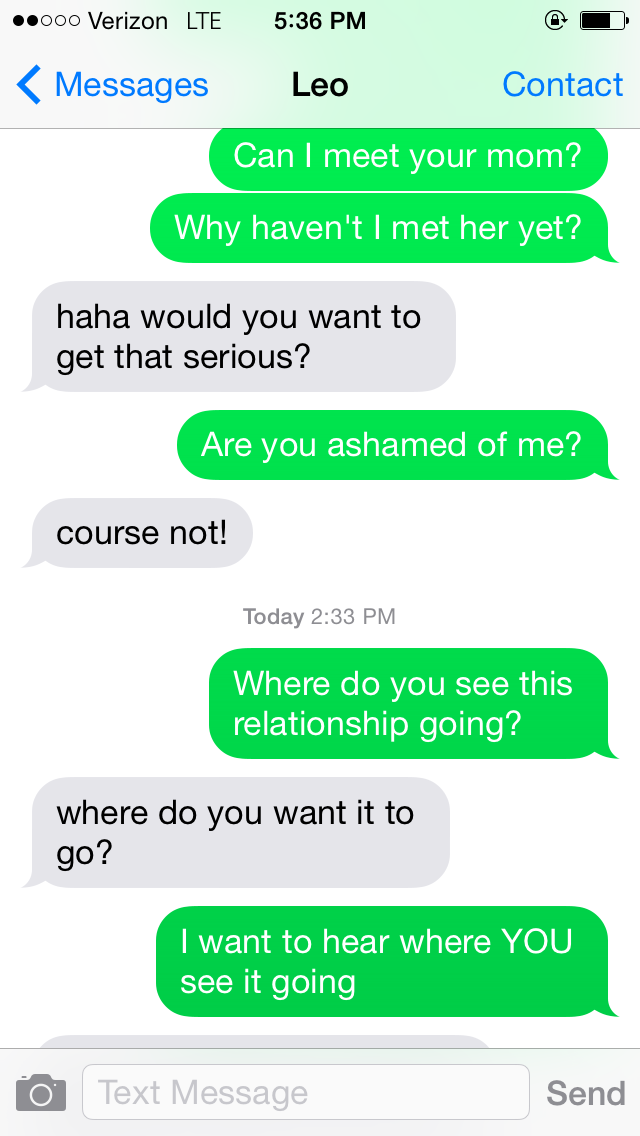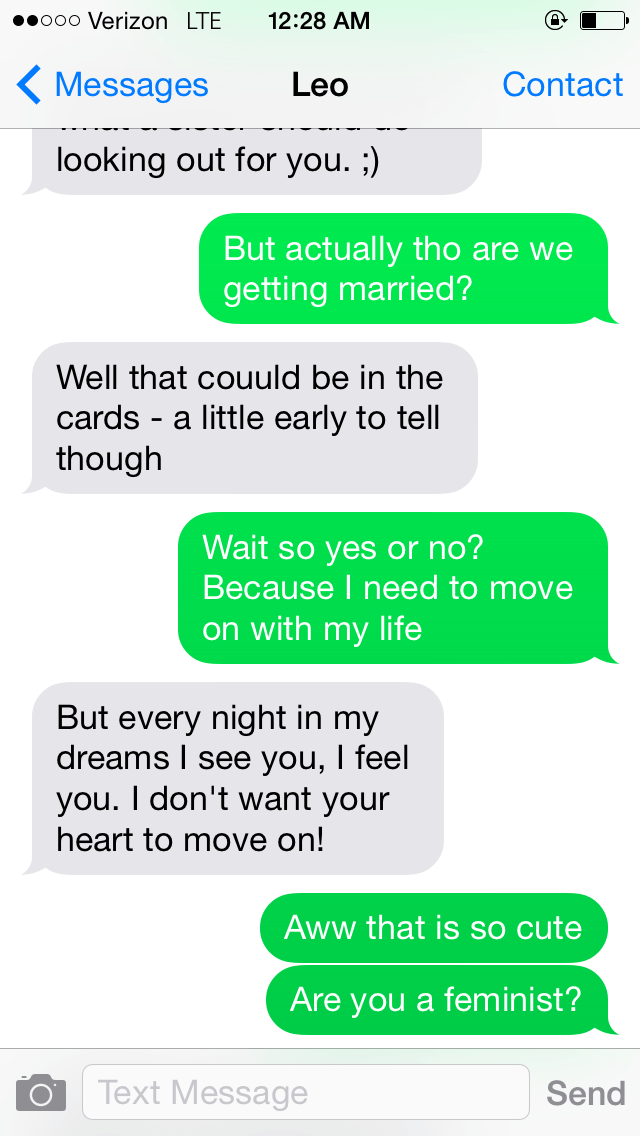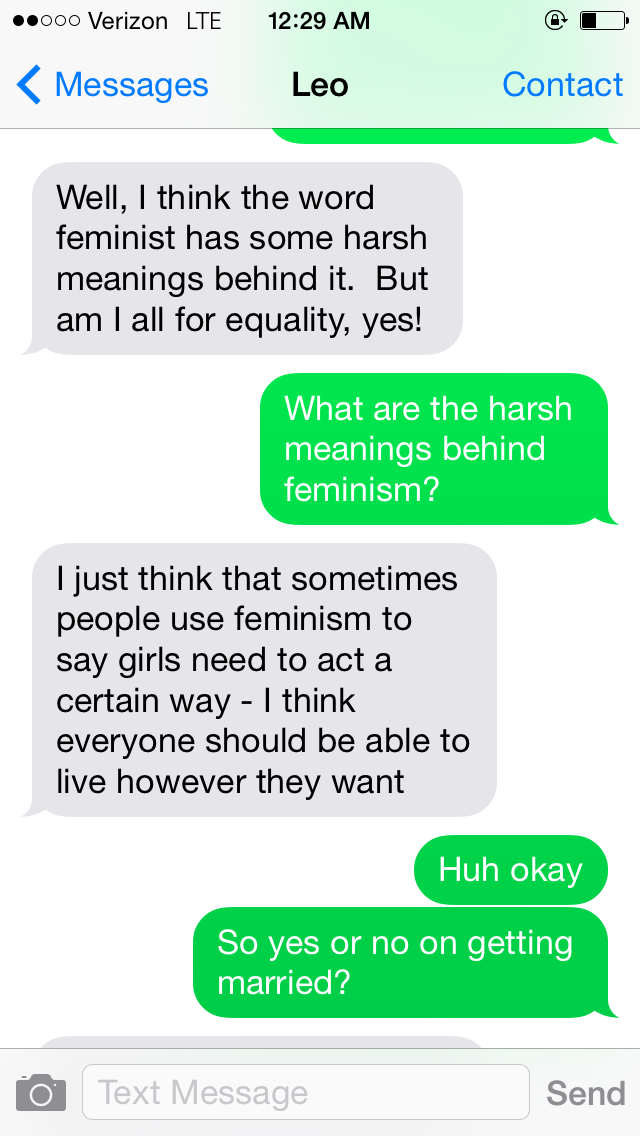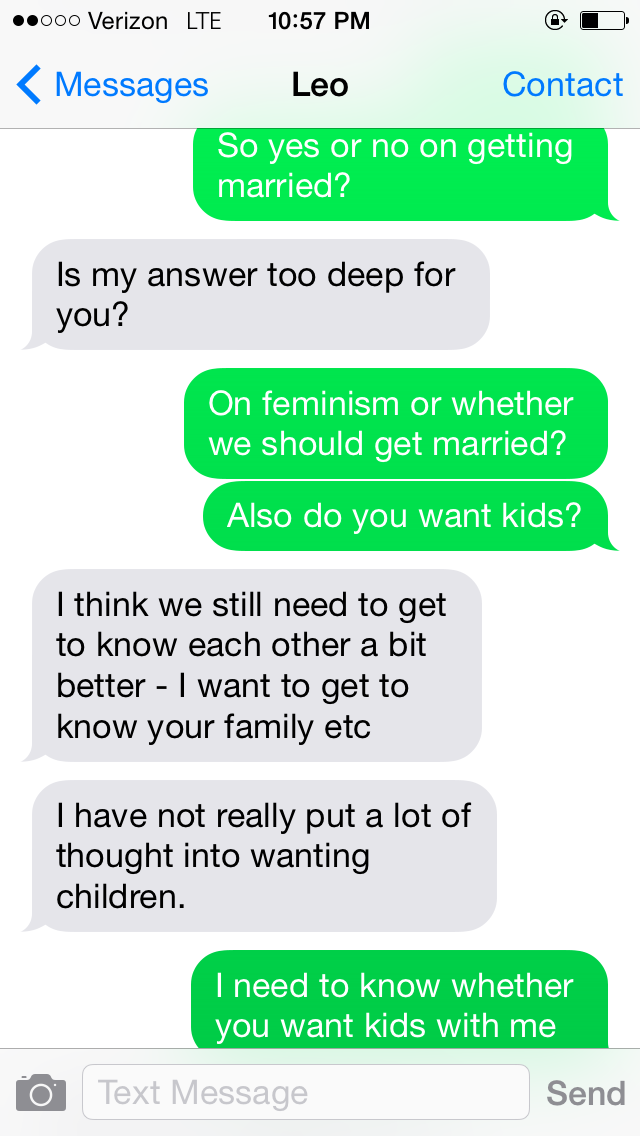My Invisible Boyfriend is named Leonardo DiCaprio. His interests include the environment, Titanic and tiny cars. He’s texting me right now.
Leonardo (or Leo, as he’s known on my phone) is a digital sweetheart I created through a new app, InvisibleBoyfriend. The purpose of an Invisible Boyfriend (or Invisible Girlfriend) is to create a convincing fake love interest to fool your co-workers or relatives into thinking you’re hot stuff on the dating scene.
Leo isn’t a robot, and he’s not an anonymous human chained to a computer somewhere. Instead, InvisibleBoyfriend has partnered with companies that allow them to scale its workforce to respond to incoming text messages. In other words, Leo isn’t one human — he’s several. So instead of communicating with one singular person, I could be texting with dozens.
But what if I fall in love with him, like Joaquin Phoenix did in Her? The short answer is: I won’t. “We’re not trying to build something that could fool you,” says founder Matthew Homann. “Our intention has always been to build something that helps you tell a better story about a relationship you’re not in.”
So here’s my story, as I described it on the app (they ask you to invent how you met, so you can have a “meet cute”): I first saw Leonardo DiCaprio in Titanic. When he came up to me after the movie, I told him I was a supermodel who specializes in posing with rare penguins. That’s when we realized we were both passionate about the environment, and he offered me a drive in his tiny eco-friendly car. The rest, as they say, is history.
Apparently somebody did his homework, because when we started texting, Leo asked if I was on set with any endangered species. He listens! Then, when I asked when he was coming to New York, he said he would be there around Valentine’s Day, and proposed a “romantic dinner, dancing, drinks… and then some time alone, maybe?” So far, so good.
“This isn’t going to be the replacement for a real long-term relationship,” Homann warned. “Oftentimes people will use this more as a cover for dating.” But I didn’t listen. So I decided it was time to define the relationship:

Leo does not want me to meet his mother, does not want to get serious and does not want to define the relationship. So when I asked if he was going to marry me, he did not take it well.

At least he knows his Celine Dion (kinda.) But for a fake boyfriend, Leo seemed terrifyingly shrewd at getting himself out of tricky conversations. Until I brought up feminism.

As you can tell, I drew the line at debating feminism with a fake boyfriend who was somewhere between a human and bot, since even some full-on-singular humans can’t seem to get it straight. Instead, I focused on the important stuff. Our relationship.

This was not going well. I was going to have to end it. Not only could Leo not have sex, occupy a human body or understand feminism, he hadn’t even given the idea of a family “a lot of thought.” It was over. When I broke up with him, he said “I’m sorry Charlette.” When I told him he’d spelled my name wrong, he said “I’m an actor, not a spelling bee winner!”
My Invisible Boyfriend was convincing enough to fool anybody else — and Homann says deceiving family and co-workers are two of the most popular uses for the app. Leo even left me a generic voicemail (“Hey, it’s me. Give me a call. Bye”) so that I could prove he was human if I’d wanted to. But my heart wasn’t in the deception. All I wanted was to get a non-bot-non-human-digital-amalgamation to understand feminism and agree to have my babies. Is that too much to ask?
More Must-Reads from TIME
- Donald Trump Is TIME's 2024 Person of the Year
- Why We Chose Trump as Person of the Year
- Is Intermittent Fasting Good or Bad for You?
- The 100 Must-Read Books of 2024
- The 20 Best Christmas TV Episodes
- Column: If Optimism Feels Ridiculous Now, Try Hope
- The Future of Climate Action Is Trade Policy
- Merle Bombardieri Is Helping People Make the Baby Decision
Write to Charlotte Alter at charlotte.alter@time.com